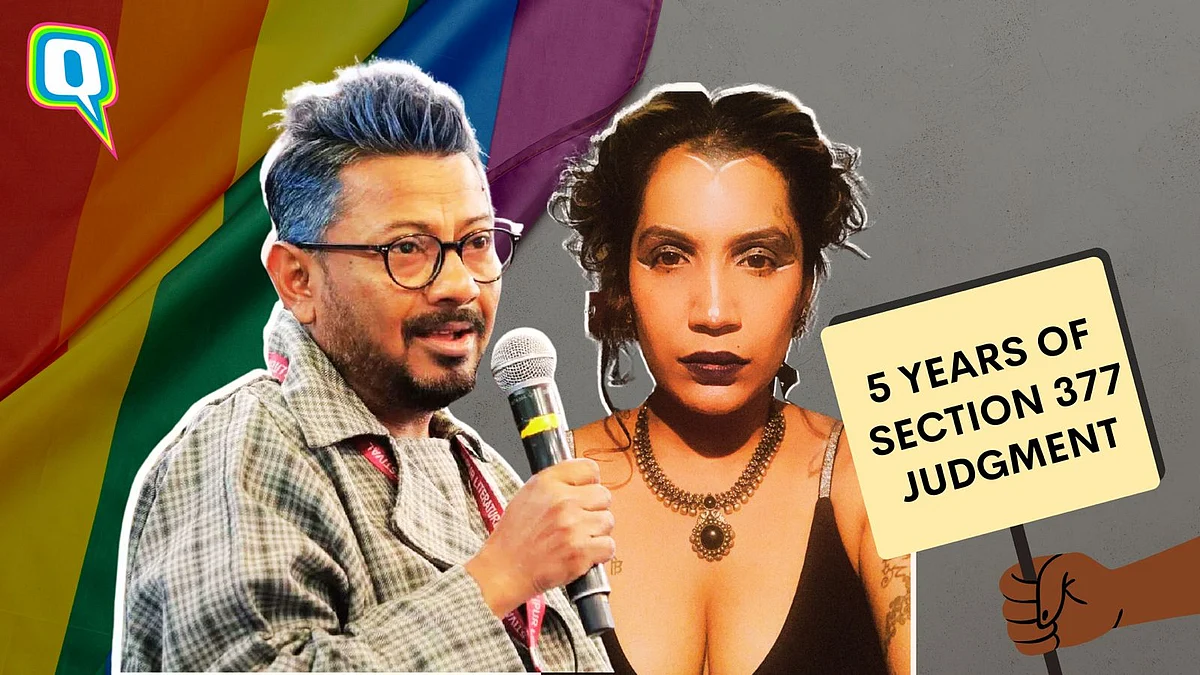
LGBTQ+ Trailblazers On Allyship, Queer Marriage And Navigating A Post-377 India
Filmmaker Onir, The Gay Gaze's Gurleen and a queer journalist talk to The Quint on 5 years of Section 377 judgement.

advertisement
Five years have passed since the landmark Section 377 judgement, where a five-judge panel led by the former Chief Justice Dipak Misra unanimously struck down the criminalisation of homosexuality in India.
These voices remind us of the ongoing struggle for social and civil acceptance that persists within the LGBTQ+ community, with several intersections within the community being disproportionately discriminated till date.
The Quint's Phelian reached out to three strong queer voices to amplify their insights on navigating a post-377 landscape.
Onir, 54, uses he/him pronouns and is a notable queer filmmaker. His body of work flaunts films like My Brother...Nikhil (2005), I AM (2010) and Pine Cone (2023), and is instrumental in holding up a sensitive and authentic evolution of the queer gaze.
Gurleen, 35, uses they/them pronouns and wears myriad hats. Apart from being the co-founder of The Gay Gaze (an organization committed to building safe spaces for queer and trans folks in Mumbai), they are also an indomitable drag artist.
P, 22, uses he/they pronouns and is a nonbinary journalist at a leading news outlet. Their insights are a testament to the evolving topography of Generation Z and how young queer citizens make their way in a post-377 India.
The Personal vs the Political
On the judgement's fifth anniversary on 6 September 2023, several queer citizens flocked to social media to share their initial reactions to the historic 2018 verdict.
Upon asking Onir, Gurleen and P, they shared distinct but equally profound reactions.
Beyond Marriage Equality
In 2023, another significant step towards LGBTQ+ rights unfolded in India as the Supreme Court conducted historic hearings on queer marriage, led by Chief Justice of India, D. Y. Chandrachud.
However, several queer folks voiced how queer liberation in India should not just boil down to the question of marriage, especially since there are several crucial queer issues affecting intersections, that are yet to be platformed on a larger scale.
What Post-377 Allyship Looks Like
In a time when the LGBTQIA+ community in India continues to grapple for basic civil liberties, the concept of allyship takes on significant importance. Mere self-proclamation as an ally by cisgender-heterosexual individuals is no longer considered sufficient.
Onir, P and Gurleen share their thoughts on what they expect from true allyship.
(At The Quint, we question everything. Play an active role in shaping our journalism by becoming a member today.)
- Access to all paywalled content on site
- Ad-free experience across The Quint
- Early previews of our Special Projects
Published: undefined